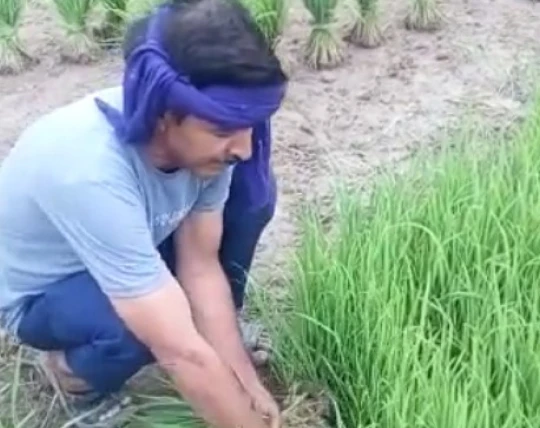Our farmers from Muzaffarpur and Samastipur cultivate a variety of organic and sustainably grown like crops Maize, Wheat, Lentil, and more which are then fine-graded and checked for quality assurance before distribution.


Nature Bio Foods’ Muzaffarpur project is situated in the subtropical region of the temperate zone, along the banks of the perennial Budhi Gandak River. This landlocked state lies between the humid West Bengal and sub-humid Uttar Pradesh, providing a unique transitional position in terms of climate, economy, and culture. It shares borders with Nepal in the north and Jharkhand in the south, with the Ganges river dividing the Bihar plain into two halves. The project is located in North Bihar, specifically in the Motipur, Sahebganj, and Paroo blocks of Muzaffarpur district, with three projects present in the area. Additionally, the Samastipur project is situated in the Tajpur, Morwa, Sarairanjan, Khanpur block, and Patepur of Vaishali district, with five projects located there.
NBF’s Project Muzaffarpur
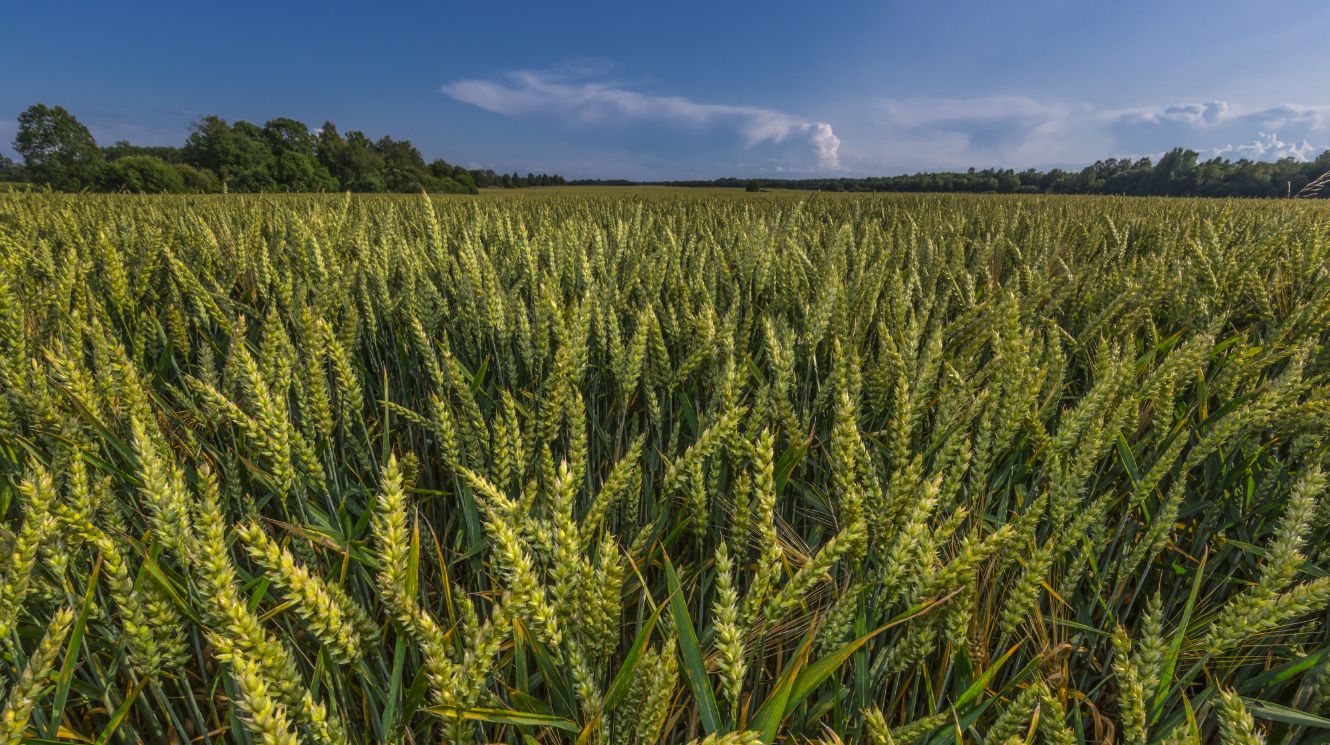

Location of the Project
NBF project is located in the northern Indian state of Bihar in the city of Muzaffarpur. Muzaffarpur serves as an important commercial and educational center in the region. The city is approximately 70 kilometers north of the state capital, Patna, and is well-connected to other major cities in the region through a network of roads and railways.
Coordinates – Nature Bio Foods’ Muzaffarpur project is situated at 26.152°N latitude and 85.398°E longitude, at an altitude of 173 feet above the mean sea level.

Organic Certification
NPOP Certified Muzaffarpur Project

Nature Bio Foods Muzaffarpur project is certified organic by the National Program for Organic Production (NPOP), which is the regulatory body responsible for implementing organic certification in India.
To obtain NPOP certification, the Muzaffarpur project underwent a rigorous certification process that involved a thorough inspection and evaluation of the entire organic farming system, from the farm to the processing and distribution facilities.
The NPOP certification program is designed to ensure that organic produce is grown and processed using strict organic standards that prohibit the use of synthetic pesticides, fertilizers, and genetically modified organisms (GMOs). It also ensures that the farmers and processors adhere to strict guidelines for sustainability, environmental protection, and social responsibility.
The NPOP certification of the Muzaffarpur Project is a testament to Nature Bio Foods’ commitment to promoting sustainable and ethical agriculture practices in India. It provides assurance to customers that the organic produce sourced from the Muzaffarpur project is of the highest quality and meets the stringent standards set by the NPOP.

Everything you need to know about Muzaffarpur
The city is situated on the banks of the Burhi Gandak River and is surrounded by fertile agricultural land. Muzaffarpur is known for its production of litchis, a popular fruit that is exported to various parts of the country. The region is also home to several ancient temples and historical sites, which attract tourists from all over India. The location of the NBF’s Muzaffarpur project makes it perfect for organic farming.
Agricultural Characteristics
Soil Profile

Our project areas are located in the Gangetic alluvium of the Indo-Gangetic plain region, which is characterized by Piedmont Swamp Soil in the northwestern part of West Champaran district, and Terai Soil in the eastern part of Bihar along the border of Nepal. Bihar is known for its clay soil, sand soil, and loamy soil. The soil in our project areas is alkaline, salt-affected, and has a pH value ranging between 6.5 to 8.4. The soil also has a low organic matter content, between 0.5-0.1%, and the NPK ratio is N- 200-400, P-10-100, K-150-350 (Kg./Ha.).

Gangetic Alluvium

Piedmont Swamp Soil

Terai Soil
Climate Condition
North Bihar has a humid subtropical climate, with cool winters and hot summers. The winter months of December and January see the lowest temperatures ranging from 2 to 10 degrees Celsius. During the summer months from April to mid-June, the average high temperatures can range from 35 to 45 degrees Celsius. The monsoon season brings good rainfall from June to September. The months of October and November, as well as February and March, have a cool and pleasant climate. The average rainfall throughout the year in this region is 1,205.6 mm.
Temp.
Minimum

2 °C
(Dec-Jan)
Maximum

45 °C
(May-June)
Humidity
Minimum

50%
(Dec-Jan)
Maximum

90%
(May-June)
Rainfall
When compared with winter, the summers have much more rainfall.
Average Rainfall

1,205.6 mm
Seasons
There are mainly three seasons.

Summer
(Mar-June)

Rainy
(July-Sep)

Winter
(Oct-Feb)
Farm Water Availability
The availability of water for agricultural purposes is a critical factor in the North Bihar region, where Muzaffarpur is located. The area is predominantly rural and dependent on agriculture, making access to water a vital resource for farmers. The region is primarily irrigated by the Burhi Gandak River, which flows through Muzaffarpur and provides a significant source of water for agricultural use. However, due to climate change and water mismanagement, the availability of water has become a growing concern in recent years. To address this issue, the government, NBF and other organizations have launched initiatives to promote sustainable water management practices and improve the availability of water for agriculture in the region.
Nature of Farmers
The Muzaffarpur district and surrounding areas are largely agricultural in nature, with farming being the primary occupation for a majority of the population. However, the nature of farming in this region is characterized by a large number of marginal farmers. These farmers own small plots of land, typically less than two hectares, and often face various challenges such as lack of access to credit, technology, and irrigation facilities. The region is known for its production of litchis, sugarcane, and various vegetables, which are grown by both small-scale and large-scale farmers. Despite the challenges faced by marginal farmers, agriculture remains a crucial source of livelihood and income for many people in this region.

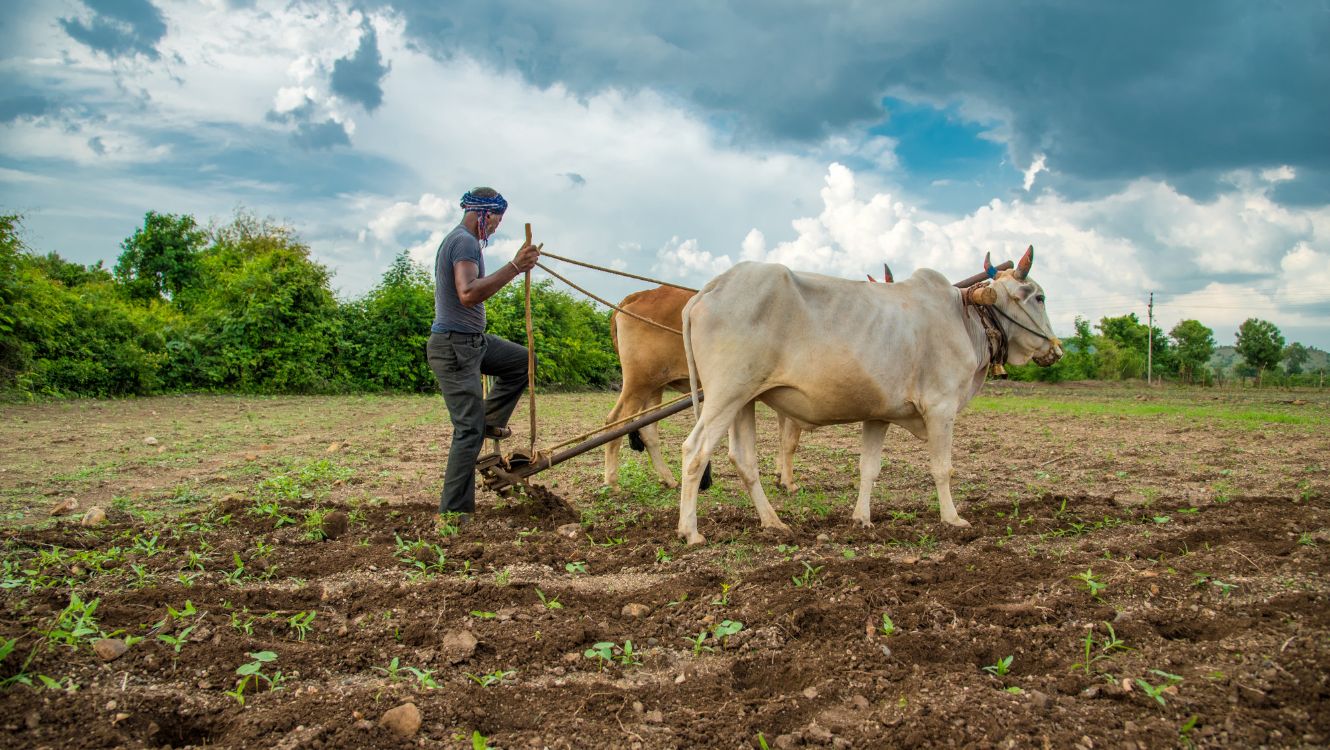

Growing Conditions
The Muzaffarpur district of Bihar is known for its favorable growing conditions and fertile agricultural land. The region experiences a humid subtropical climate, which is characterized by hot summers, cool winters, and good rainfall during the monsoon season. The region’s soil is rich in nutrients and is ideal for cultivating crops like litchis, mangoes, bananas, and vegetables. The local farmers follow traditional organic farming practices and rely on seasonal rainfall for irrigation. The region is also home to several agricultural research centers that work towards improving crop yields and promoting sustainable farming practices.
Crop Details
The region around Muzaffarpur is known for its fertile agricultural land and is a major producer of various crops. Among the most popular crops grown in the region, paddy (rice) takes the top spot in terms of popularity, followed by maize and green gram. Wheat, mustard, lentil, and flaxseed are also commonly grown in the region. The fertile soil and climate conditions make this region ideal for organic farming, and the abundance of crops ensures a steady supply of food and raw materials for the local economy.
Kharif
- Paddy
- Black Gram
- Maize
- Green Gram
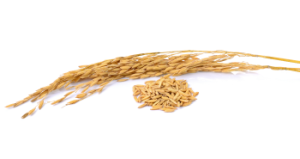
Rabi
- Wheat
- Maize
- Lentil
- Flaxseed
- Muztured
- Chickpea
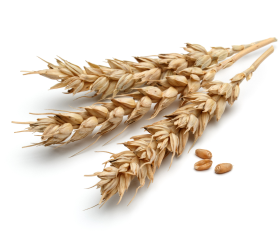
Statistics
NBF Supply Chain

NBF Supply Chain
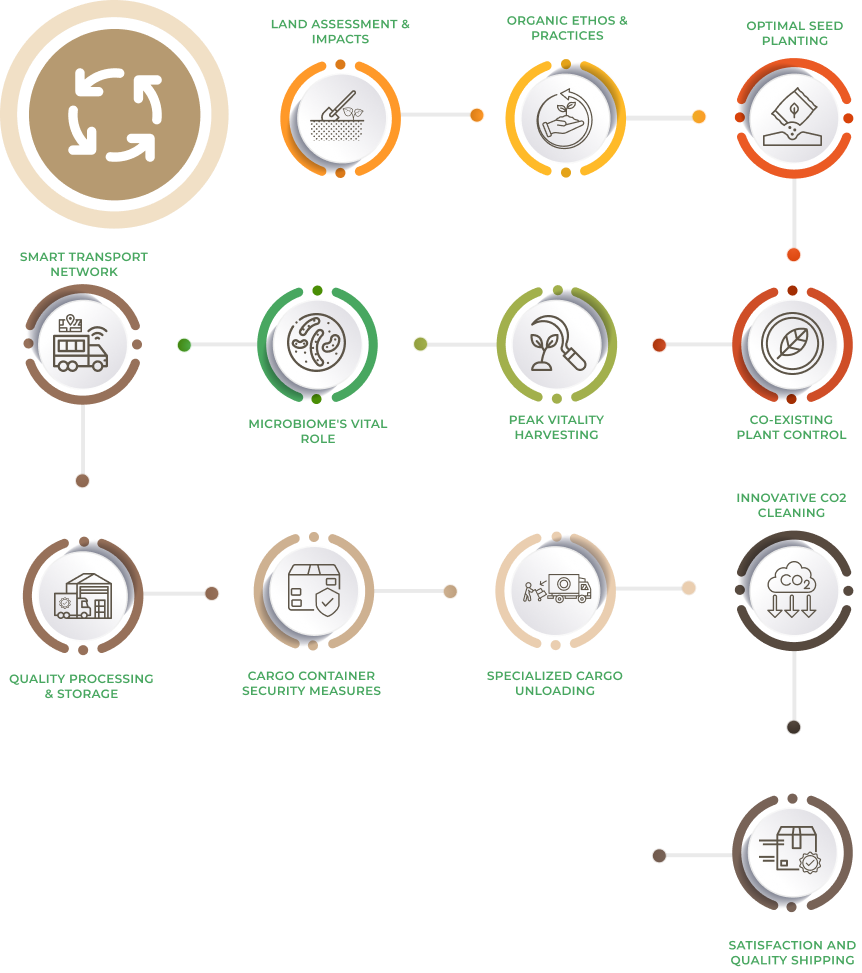
How to Reach Muzaffarpur?
Muzaffarpur is well-connected to other major cities in the region by road, rail, and air. Here are the various options to reach Muzaffarpur:

By Train
Muzaffarpur Junction railway station is one of the busiest railway stations in Bihar and is well-connected to major cities like Delhi, Kolkata, Mumbai, Chennai, and Hyderabad.

By Road
Muzaffarpur is connected to other cities in Bihar and neighboring states by a network of national and state highways. Buses and taxis are available from nearby cities like Patna, Gaya, Varanasi, and Gorakhpur.

By Air
Muzaffarpur is also connected to other cities in the region through the Gandak River, which is a major waterway in Bihar. However, there are limited options for transportation via waterways.

Places to Visit in Muzaffarpur, Bihar
Baba Garibnath Temple
Located in the heart of the city, Baba Garibnath Temple is a famous Shiva temple and is considered one of the most sacred places in Muzaffarpur. The temple attracts a large number of devotees throughout the year, especially during the festival of Shivratri.
[/mvc_ihe]Ram Chandra Shahi Museum
This museum is dedicated to the life and works of the famous freedom fighter, Ram Chandra Shahi. The museum showcases various artifacts, photographs, and documents related to his life and the Indian independence movement. It is a must-visit place for history buffs and those interested in the Indian freedom struggle.
[/mvc_ihe]

Elevation
It has an average elevation of roughly 60 meters.


River
It lies near the Gandhak river, a tributary of the Ganges.


Soil
Gangetic alluvium, Piedmont Swamp Soil, Terai Soil
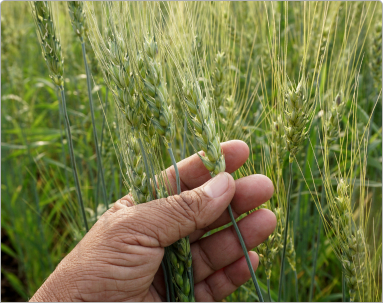

Crop
Paddy, Maize, Wheat, Mustard, Lentil, Flaxseed
Sustainability Efforts
Economic
| Women's Empowerment through Entrepreneurial Training Programs |
234 |
|
| Empowering Young Women: Career Counseling for Future Success |
454 |
|
| Craftsmanship Unleashed: Skill Development in Artisanal Handicrafts |
245 |
|
Social
| Nourishing the Future: Workshop on Child Nutrition and Well-being |
1200 |
|
| Guiding the Leaders of Tomorrow: Mentoring Programs for Students |
850 |
|
Environmental
| Cultivating the Earth: Advanced Training in Soil Regeneration |
355 |
|
| Towards a Plastic-Free Future: Comprehensive Reduce and Reuse Initiatives |
1233 |
|
| Preserving Our Lifeline: Campaigns for Water Conservation and Stewardship |
211 |
|
| Agriculture in Harmony with Nature: Organic Farming workshops |
986 |
|
| Clean Village, Healthy Village: Promoting Cleanliness and Sanitation at the Grassroots Level |
653 |
|
Our Impact

Impact of our Farmers
The impact of our farmers is significant in enhancing soil fertility through various methods such as crop rotation, cover cropping, reduced tillage, and application of compost. These practices reduce fuel-intensive tillage, resulting in carbon sequestration, decreasing greenhouse gases, and reversing climate change. In addition, they can improve soil structure and reduce the possibility of soil erosion.

Difference our People are Making
The difference our organization is making is by converting land from conventional management to organic management, managing the entire surrounding system for biodiversity and sustainability, and using alternative sources of nutrients such as crop rotation, residue management, and organic manures. We provide complete biological inputs to our crops, and our teams supervise and manage weed and pest control through better management practices, physical and cultural means.

Contribution by our Customers
Our customers’ contribution is vital in promoting food safety and environmental issues. The concern for their health, the environment, and worldwide crises has increased exponentially. Organic agriculture has become the only option for many consumers. Simply by consuming organic produce, they are contributing to the overall health of the planet and making an impact towards sustainability.






